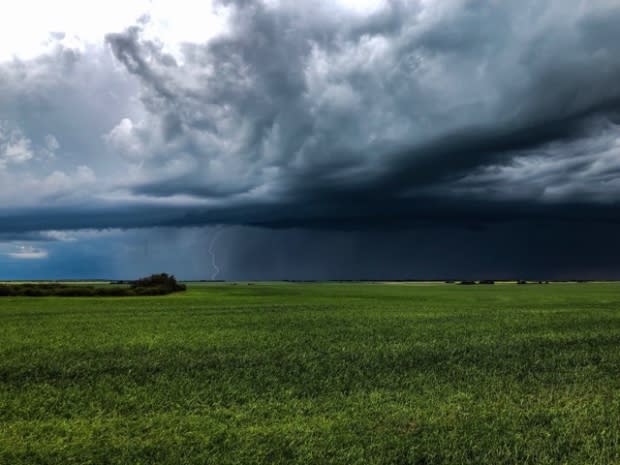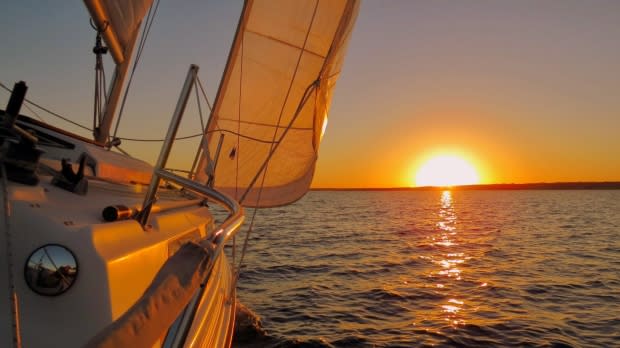What to do when bad Saskatchewan weather hits
It has been an intense week of Weather in Saskatchewan.
Storms put a halt to the Tim McGraw show at last week's Country Thunder festival and ripped through Luseland, leaving extensive damage. Plough winds flattened buildings in Eston. A tornado touched down in Northgate, Sask., and hail struck Moose Creek Regional Park, Alida, Frobisher and several other regions.
Meteorologists at Environment and Climate Change Canada issued warnings for each of the powerful storms.
Some people heeded the warnings and made plans, but many were caught in difficult situations.
Terri Lang is a meteorologist for the Environment and Climate Change Canada, based in Saskatoon. She has some tips on what to do if you receive a weather warning, whether you're fishing, camping or just out and about.
Out on a hike
Enjoying the great outdoors is fine, but when you are going to be out in the open kilometres from any shelter you've got to plan and prepare, Lang said.
"It's one of the worst scenarios you can be in. You are at risk for being struck by lightening too - it's not just the winds and hail," she said.
People usually prepare for a hike, so people should know the forecast before they go out, so they don't put themselves in that situation.
Stuck in a tent

Tent campers face several challenges in a large storm.
High winds can be dangerous and when lightning strikes the current can be carried through the ground.
"Because you're in contact with the ground you're at risk," said Lang.
Your best bet is to get out of your tent and seek shelter in a vehicle or nearby building with solid walls, she said.
On the water

Storms can comes in quick.
When you are in a boat and see a thunderstorm approaching, head to shore.
"If you are out of cell range, and aren't getting the warnings, you need to rely on your own eyes and ears, and get off the lake as soon as possible." Lang said.
Lang adds you are at risk of many weather factors - high winds can create big waves and can overtake your boat. You are also at a greater risk of lightning strikes.
"Being in a boat can make you the tallest thing on the lake, and many boats are made of metal."
At an outdoor event

When you're caught in a field at a concert or another big celebration, shelter isn't always easy to find.
Organizers have a responsibility if they are going to put on a event.
"It's their responsibility to monitor the weather and let people know when the conditions do deteriorate," Lang said.
The risk of hail and high winds is obvious, but lightning is also a threat.
Lang says she's of the mind that people also need to be responsible for themselves.

Warning fatigue

With all the weather warnings and alerts every summer, some people forget to pay attention.
They think, "That's for someplace else, that doesn't apply to me," Lang said.
Lang said that sometimes, people like to push it and wait until the last minute to take cover.
"You make bad decisions when you are unprepared and in a panic."
She reiterated that people have to take responsibility for their own safety and to have an exit plan and know when to use it.
"We have the best in the business and they always err on the side of caution," Lang said. "Their top priority is the safety and security of folks."


